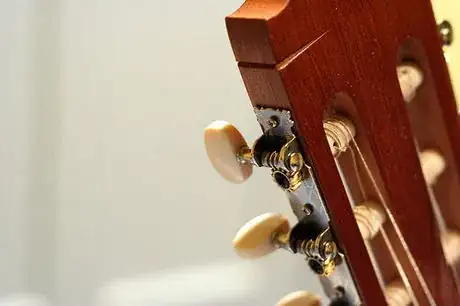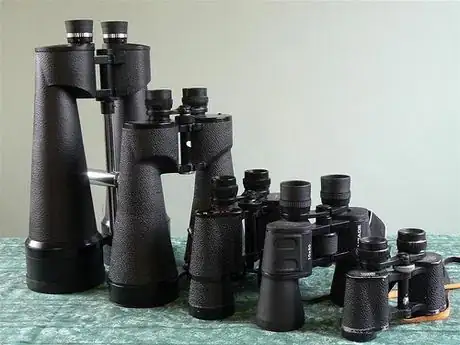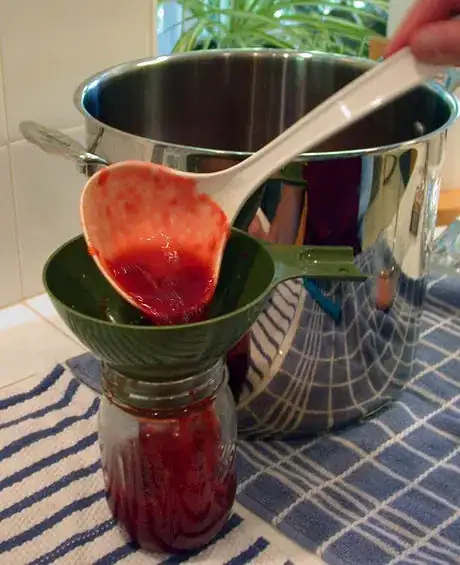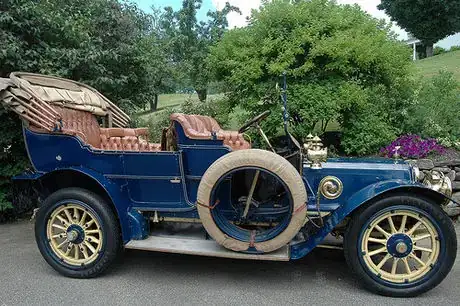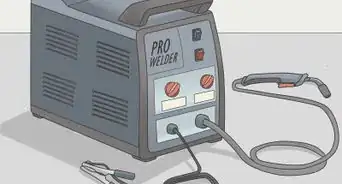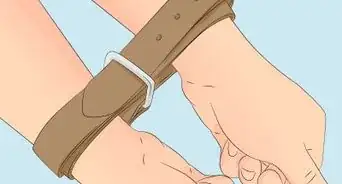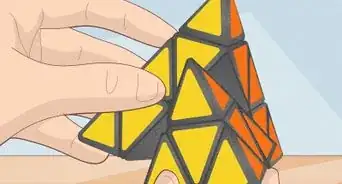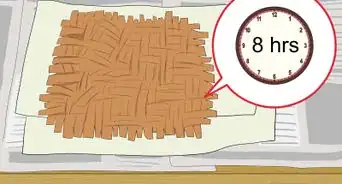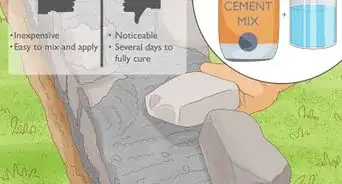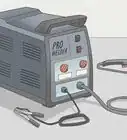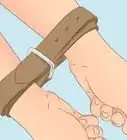X
wikiHow is a “wiki,” similar to Wikipedia, which means that many of our articles are co-written by multiple authors. To create this article, 20 people, some anonymous, worked to edit and improve it over time.
This article has been viewed 97,413 times.
Learn more...
Do you love your hobbies but don't have the money to pursue them to the full extent you'd like? It's not a hopeless cause – here are some good ways to keep your spending in check and still have lots of fun in your free time.
Steps
-
1Pursue less costly hobbies. It's a fair bet that writing will cost less than motorcycle racing. Money isn't the only reason to choose or avoid a hobby, but you should certainly consider the costs.
- Choose hobbies that require time, creativity, skill, ingenuity, or knowledge rather than money or gear.
- Light aircraft flying, designer shopping, car modding and playing the latest video games are all likely to be expensive hobbies. Perhaps saving up for them in the future is a better approach than trying to participate in them now without the money needed to make them enjoyable.
-
2Keep ancillary costs down. Gardening isn't a cheap hobby if you decide you need a riding mower and a pickup truck to get it done, or if you change plants as often as you change clothes. Instead, enjoy the challenge and the rewards of growing from seed, transplants, and cuttings. Get smaller plants cheaply and grow them into larger ones. Learn to save seeds if you like to grow vegetables or other annuals.
- On the other hand, if you have a large area to mow, a riding mower might be worth the investment, especially if it frees up your time to enjoy the gardening as a whole. Could you share both the mower and the cost with neighbors?
Advertisement -
3Stay close to home. If you have to drive for hours to see snow, don't ski. Find something else to do outdoors, such as skating or bicycling.
-
4Learn the hobby well before you buy or upgrade too much gear. You can learn a lot about photography with a $20 secondhand camera and some practice. You can do a lot of astronomy with your own eyes or with the pair of binoculars you already own. Learning the hobby first is also a good way to avoid having stacks of leftover stuff if you tend to switch around frequently.
- Borrow or rent to try out hobbies that require large investments in gear such as mountain climbing or hang-gliding, before you start buying. If you find you dislike them or simply don't have time to pursue them, you won't be left with a lot of depreciating equipment.
- Learn to be resourceful rather than spend money.
- Look for used equipment and materials opportunities. Many hobbyists sell their good condition equipment through clubs, in the newspaper, and online.
-
5Stick to hobbies and projects that you like. If you enjoy doing something, do more of it using what you already have rather than starting new hobbies or projects frequently.
- Sometimes you can use common equipment and build common skills for a single basic activity while enjoying it in very different contexts. For instance, if you're now a classical violinist, you might enjoy "fiddling" for folk music, too.[1] If you're now a wedding, portrait, documentary, or wildlife photographer, you might enjoy sports photography (don't buy a monster lens, just increase the ISO a bit) and, while you're at it, learn how to deal with the jumpiest subjects possible.
- This doesn't mean you shouldn't try new things. It does mean that you should stay the course, complete projects, and master the hobbies you have already chosen to pursue before chasing new ones.
-
6Consider new purchases carefully. For equipment, choose durable items that will last a long time and give you plenty of use. Assuming you will pursue a hobby for a long time to come, plan for your supplies to last a long time.
-
7Maintain your equipment. Once you have good, durable equipment, do what is necessary to keep it in good working order. Often, minor maintenance along the way can prevent major maintenance later on. Whether it means rinsing your swimsuit or oiling your sewing machine, take the time to keep your gear in good shape.
-
8Buy only the supplies you know you will use. You can't knit without yarn or quilt without fabric, but that doesn't mean you need to stockpile or hoard yarn. Try to have a project in mind before purchasing supplies.
- For some creative pastimes, it is worth keeping some supplies around so that they're available when inspiration strikes. If this is the way you pursue your hobby, gradually build up a reasonable selection of supplies as your budget permits. Then, try to acquire supplies at about the same rate you use them. Keeping your "stash" at a reasonable level will also help make it easy to organize.
- Try to use up your supplies or "outgrow" your gear before buying more.
- Keep in mind supplies that go out of stock or change with time. For example, paint or fabric patterns might change if you don't get enough at the beginning of your project. In this case, stockpiling is a safeguard of quality rather than hoarding.
- Learn to make the most of simple materials. Some people do incredible, photorealistic drawings with a basic, ballpoint pen. Woodworkers sometimes hold 2x4 contests, where the objective is to make something wonderful from a single building-grade 2x4 board.
-
9Get a better price. Buy used if it makes sense to do so. Many people stop pursuing hobbies after a time and sell or discard perfectly good, used equipment and supplies. Watch for sales and bargains on the items you buy new.
- Look into getting used gear or supplies, especially your first time out, for costly items. Thrift store yarn or a skein of cheap acrylic will get you a long way to learning knitting or crochet much more cheaply than making your mistakes on fancy yarn. If you have $200 to spend on a bicycle, see if you can get a better used bike for that price than a new one.
- If your hobby is seasonal, look for opportunities to get things at the end of their seasons when they are marked down for clearance.
- Use found materials, discarded materials, scraps, or remnants. Besides being free or low-cost, scraps can constrain and focus your creativity in unexpected, serendipitous ways.
-
10Choose hobbies that will save you money, or at least improve your lifestyle at moderate expense. Get into do-it-yourself home improvement. Learn woodworking or canning. Grow your own food, or some of it. Riding a bike could save you a lot of money on fuel and wear and tear on your car, not to mention the cost of a gym membership.
- Choose complementary hobbies. If you love to ride bikes, try learning how to fix them, too. If you already love to cook, canning or other food preservation methods may be a natural next step. One hobby could save you money on the other and extend your skills without needing a lot of new stuff.
-
11Choose hobbies that will result in gifts you don't have to buy. Cooking and many crafts (woodworking, painting, crochet, etc.) fall into this category, but don't forget things like teaching, storytelling, and helping others with repairs or improvements.
-
12Volunteer your time. It can be incredibly rewarding to help others, and may cost little or nothing. And it soon becomes a very enjoyable hobby.
-
13Pace yourself. Set budgets both for money and, if necessary, for your time. Set aside a certain amount of money each week, each month, or each payday. You can use a jar at home, a separate bank account (such as a Christmas Club account), or any bookkeeping strategy you want to keep your hobby money separate. Use this money for supplies, equipment, travel, and any other hobby related expenses, and don't go over it.
-
14Keep travel and event costs in check. Not all hobbies require travel, but if yours involves travel or going to events, include these costs in your budget, and keep the number and costs of the events you attend reasonable. You can decide what reasonable is for you.
- Figure for travel costs, admission, entry fees, hotels, and any other costs associated with attendance.
- Attend only local events and meets, or attend the local meets/shows and one or two big regional ones annually. Or consider attending on alternate years.
-
15Practice your hobby on a modest scale. If you do race motorcycles, do you really need more than one? Does it need to be the top of the line, or can it be a dependable, mid-range model? Remember that you must maintain it, store it, haul it around, and so on.
-
16Go pro. Some hobbyists make professions of their hobbies, or at least make a little extra money. The level where your sales cover your materials and treats comes quite early, the level you can use it as a second job or live on it takes more skill and more work. Self-supporting hobbies often allow you to use the best and most expensive materials and tools as those pay for themselves with better sales and better pricing.
- Sell your creations. If you make something in the course of your hobby, get good at it and try selling it. Be sure to price it appropriately.
- Sell your services. If you've learned how to repair bicycles or cars, tend a garden, paint portraits, or take photographs, see if you can start a business doing that or work for someone else who does.
- Teach your hobby. Offer lessons in doing whatever you've gotten good at.
- Write about your hobby. Especially if you have gotten into something unusual, write about your hobby and sell your book or the advertisements on your website.
- Invent equipment or equipment modifications related to your hobby and sell those.
- Invent projects and sell plans or patterns to other hobbyists.
Advertisement
Community Q&A
-
QuestionWhat if my hobby is collecting Squishmellows? (If you don't know what those are look it up. You've been missing out.)
 AnotheronebitesthesoilCommunity AnswerSee if you can find some that are used at thrift stores or on eBay to get a good price. Shopping for them online is likely cheaper than buying in stores. You can also ask friends and family members to give you them as gifts. Don't spend all of your money on them. You may want to set limits for how many you can buy a month. Getting to know other collectors, exploring the different types of Squishmellows, or making crafts and art that relate to your hobby can make it even more fun.
AnotheronebitesthesoilCommunity AnswerSee if you can find some that are used at thrift stores or on eBay to get a good price. Shopping for them online is likely cheaper than buying in stores. You can also ask friends and family members to give you them as gifts. Don't spend all of your money on them. You may want to set limits for how many you can buy a month. Getting to know other collectors, exploring the different types of Squishmellows, or making crafts and art that relate to your hobby can make it even more fun. -
QuestionWhat hobbies are best for making money?
 AnotheronebitesthesoilCommunity AnswerMany people purchase items at a low cost from yard sales or thrift stores and resell them online for a higher price. You can do this with antiques, collectibles, jewelry, designer clothing, books, video games, and more, but make sure you know about what you want to sell to avoid losing money.
AnotheronebitesthesoilCommunity AnswerMany people purchase items at a low cost from yard sales or thrift stores and resell them online for a higher price. You can do this with antiques, collectibles, jewelry, designer clothing, books, video games, and more, but make sure you know about what you want to sell to avoid losing money.
Advertisement
Warnings
- Remember that many people go into popular hobbies because they are fun. If you try to make a business of them, you may not earn very much, simply because the supply exceeds the demand. At the very least, don't quit your day job until you're sure you can make a go of it with your hobby.⧼thumbs_response⧽
- Remember that turning your well-loved hobby into a successful business could become stressful, even to the point where you lose the joy you once had in your hobby. This can happen because running a business is often complicated and demanding, or simply because it can make you look at the activity as something you're being pushed to do rather than something you want to do.[2]⧼thumbs_response⧽
Advertisement
References
About This Article
Advertisement




